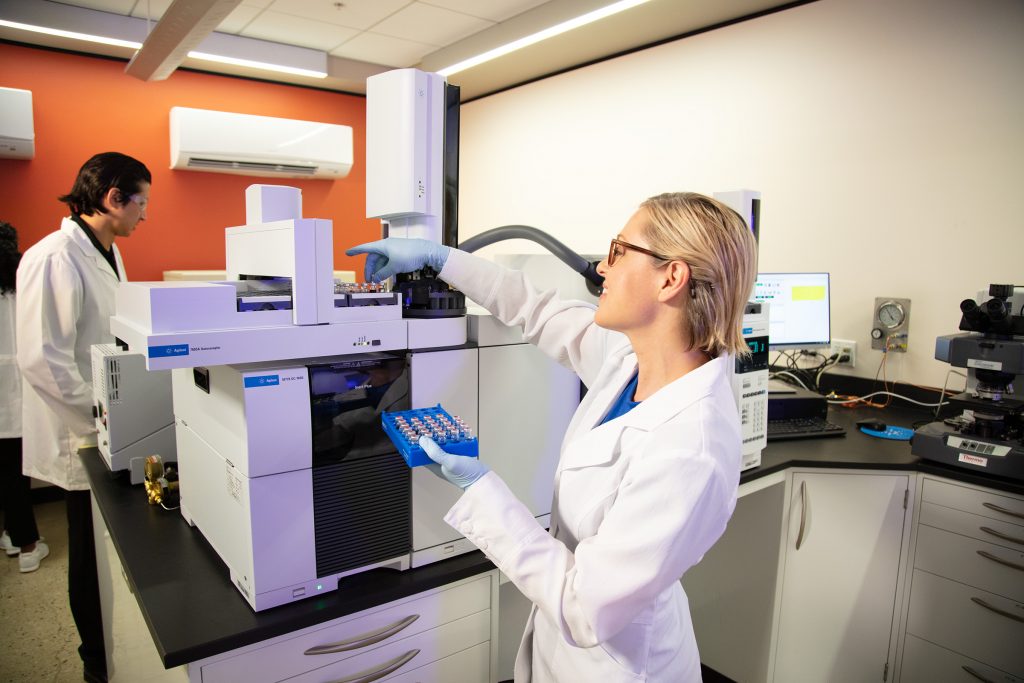Meissner building $250M Georgia plant

Camarillo-based life sciences firm Meissner Corporation is planning to build a second, nearly $250 million manufacturing facility in the United States.
The facility will be in Athens-Clarke County, Georgia, which has a modest biotech hub. The project, which the company says is expected to create more than 1,700 jobs over the next eight years, was announced in an April 5 news release.
The new facility will more than double Meissner’s manufacturing footprint in the U.S. Meissner also has a manufacturing facility in Ireland, which was purchased in 2019 and started production in 2020.
“We are thrilled to embark on this important expansion and are excited to build our second U.S. manufacturing campus in Athens-Clarke County,” President Chris Meissner said in the release.
He said Georgia and Athens-Clarke County in particular, “is an ideal location with an incredible talent pool and strong geographic position that allows us to serve clients on the East Coast and throughout the world.”
Founded in 1984, Meissner manufactures advanced microfiltration products and therapeutic manufacturing systems for critical pharmaceutical and biopharmaceutical applications. The applications include the sterilization of injectable drugs, and the development and manufacture of life-enhancing/life-saving drugs, therapeutics, biologics, and cell and gene therapies. The drugs are used to treat heart disease, cancer, immune diseases and other conditions.
The company is also a supplier to manufacturers of COVID-19 vaccines, therapies, treatments, and associated test kits.
The project’s $250 million price tag will cover the land investment, design and construction of the new facility in an industrial park in Winterville in Athens-Clarke County, the company says. The firm expects the new site to consist of multiple structures, which will include state-of-the-art cleanroom facilities, laboratories, research and development, and office spaces.
Groundbreaking is anticipated for the fourth quarter of this year. Operations are expected to begin in early 2026.
The company will be hiring for a broad range of roles including technicians, scientists, engineers, and information technology and administrative positions.
Georgia Gov. Brian Kemp said he welcomes Meissner to the state.
“As the No. 1 state for business, Georgia remains a leader in a wide range of industries, including life sciences,” Kemp said in the release.
The company “will find a talented workforce and strong partnership with both the state and the people of Athens-Clarke County,” he said. Meissner plans to work with the University System of Georgia and the Technical College System of Georgia, including schools such as the University of Georgia, Georgia Institute of Technology, and Athens Technical College.
The partnerships will explore potential internships and other collaboration opportunities through relevant programs of study.
Kelly Girtz, mayor of the unified government of Athens-Clarke County, said Meissner is a good fit with “our cluster of biotechnology businesses, and our engineering and bioscience research and expertise.”
Georgia Department of Economic Development Commissioner Pat Wilson said Meissner provides critical equipment that benefits key industries in Georgia.
“From life sciences to food processing, companies across the state rely on these filtration systems to produce products that are safe for use,” he said.
Chris Meissner said in the release he appreciates the partnership with Georgia and Athens-Clarke County officials and is “eager to break ground to join the community.” He was unavailable for further comment.
The Georgia Department of Economic Development’s Global Commerce team worked on the project in partnership with Invest Athens, Georgia Power and Georgia Quick Start.
In 2021, Meissner received a $13.4 million grant from the U.S. Department of Health and Human Services and began hiring extensively to meet a massive uptick in demand for vaccine manufacturing infrastructure and other medical devices.









